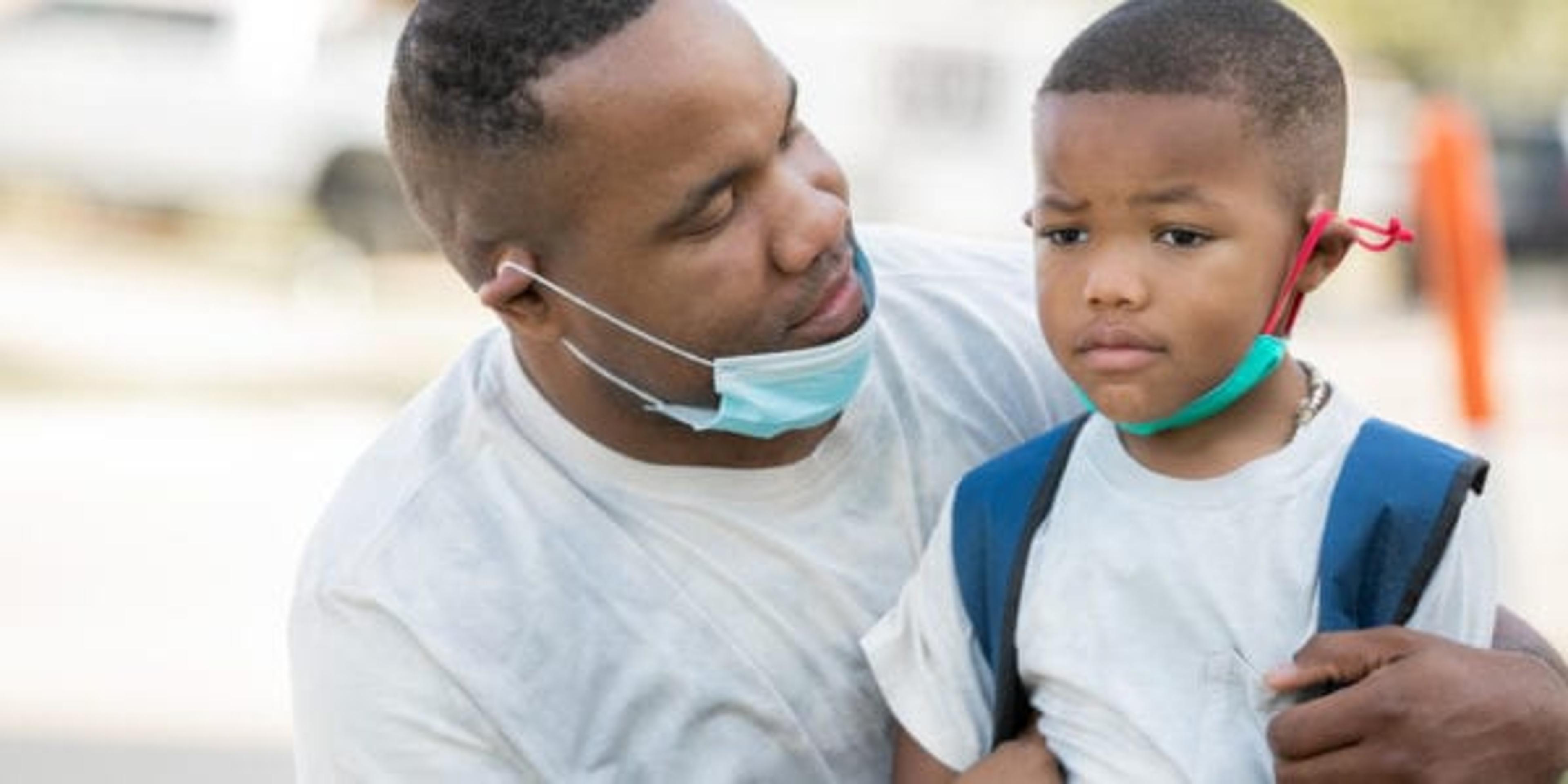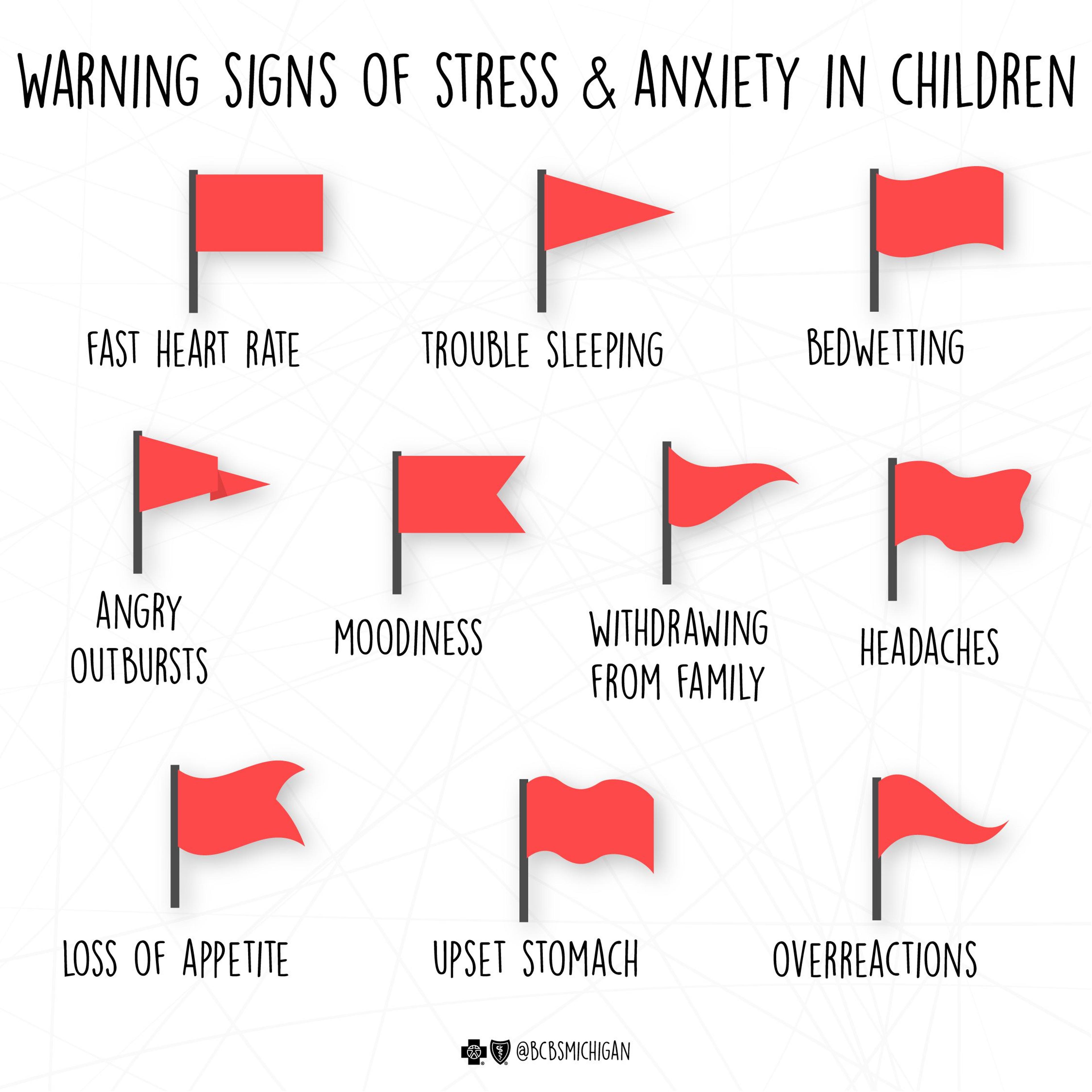How to Spot Warning Signs of Stress, Anxiety in Children
Shandra Martinez
| 3 min read

Sometimes as parents we can get so busy taking our kids to sports practice or music lessons, double-checking that all their homework is done or that their room is picked up that we can miss some early warning signs of stress. While they don’t yet have adult-size responsibilities, elementary-age kids and adolescents have plenty of stressors in their lives. They can range from troubles with friendships, dealing with middle-school rumors, to dating angst and peer pressure from older kids.
The pandemic has added an extra layer of anxiety for many young people, especially those trying to maintain social connections while in school remotely or on a hybrid schedule. Dealing with some stress is normal and even healthy. Worrying about a test or finishing a big homework project teaches kids to push themselves a bit to get things done, leading to personal growth. But stress caused by a traumatic event – an injury, accident or their parents’ divorce – can be harder for them to know how to handle. So can chronic stress, when small things snowball into something children don’t feel they can manage on their own. This can cause a cascade of emotions that quickly get a parent’s attention.

Maybe this scenario sounds familiar: A middle schooler can’t find a homework paper she knows she has finished. She’s turned her room upside down and emptied her backpack. There’s yelling, even some tears, and she won’t let anyone help her. Sitting down with her, the pre-teen’s parents find out she’s really upset about things classmates were saying about her on social media, and that she was moved down a chair in band class because she wasn’t prepared with her new music on time. Misplacing her homework was the last straw in a bad day.
Teaching children and teens how to handle their stress is part of parenting. But it helps to be able to spot those early warning signs. According to the American Psychological Association, stress and anxiety can manifest as physical, emotional and behavioral symptoms in children. Here are a few things to watch for:
Physical warning signs. Stressed-out kids might complain of headaches or an upset stomach. If this sudden onset of symptoms comes before a big test or class presentation, anxiety could be the underlying cause. Other physical symptoms include:
- Bedwetting
- Fast heart rate
- Trouble sleeping
- Loss of appetite
Emotional and behavioral warning signs. With these red flags, parents might notice that a child does not seem like himself. Moodiness, angry outbursts, overreactions and even withdrawing from family and wanting to be by themselves are signs of stress.
Treat each child as an individual. Because children have unique personalities, there is no one right way to help them through their bouts of stress. Some have temperaments that allow them to cope better than others. But there are some things kids have in common, according to the American Academy of Pediatrics. All young children and teens can handle stress better if they have the following things:
- If they have previously been able to manage challenges in their life.
- If they have emotional support from their family and friends.
- If they have a good sense of self-esteem.
Related:
Photo credit: Getty





